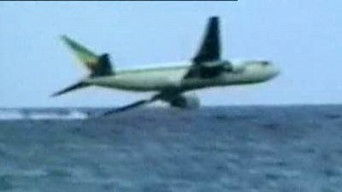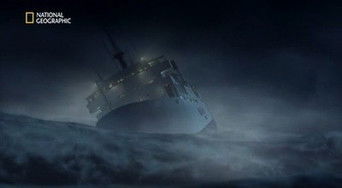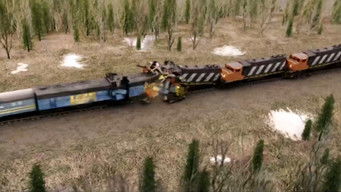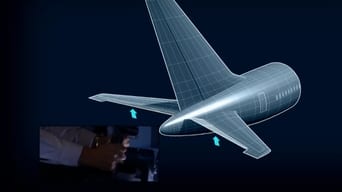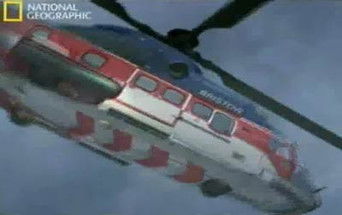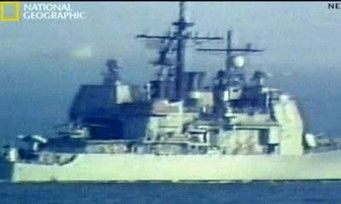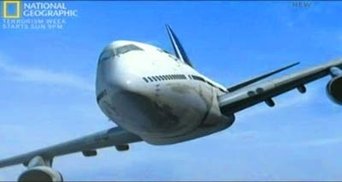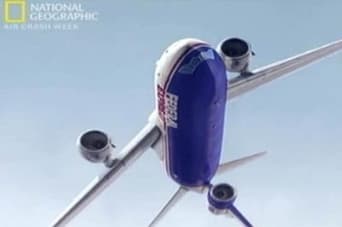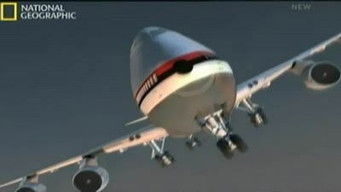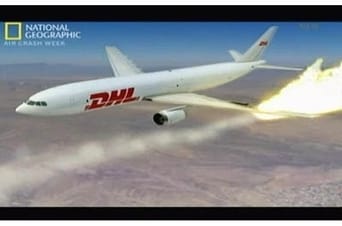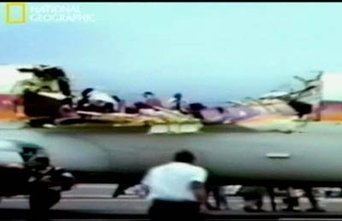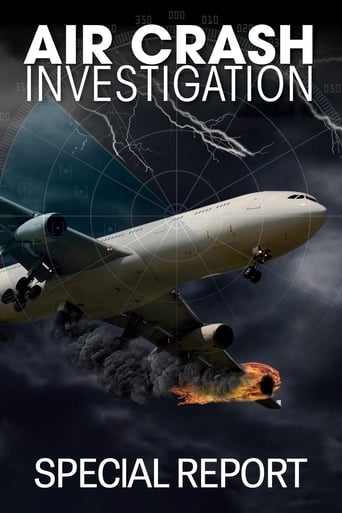Mayday Season 3
With 30 Day Free Trial!
Mayday
2003 / TV-14




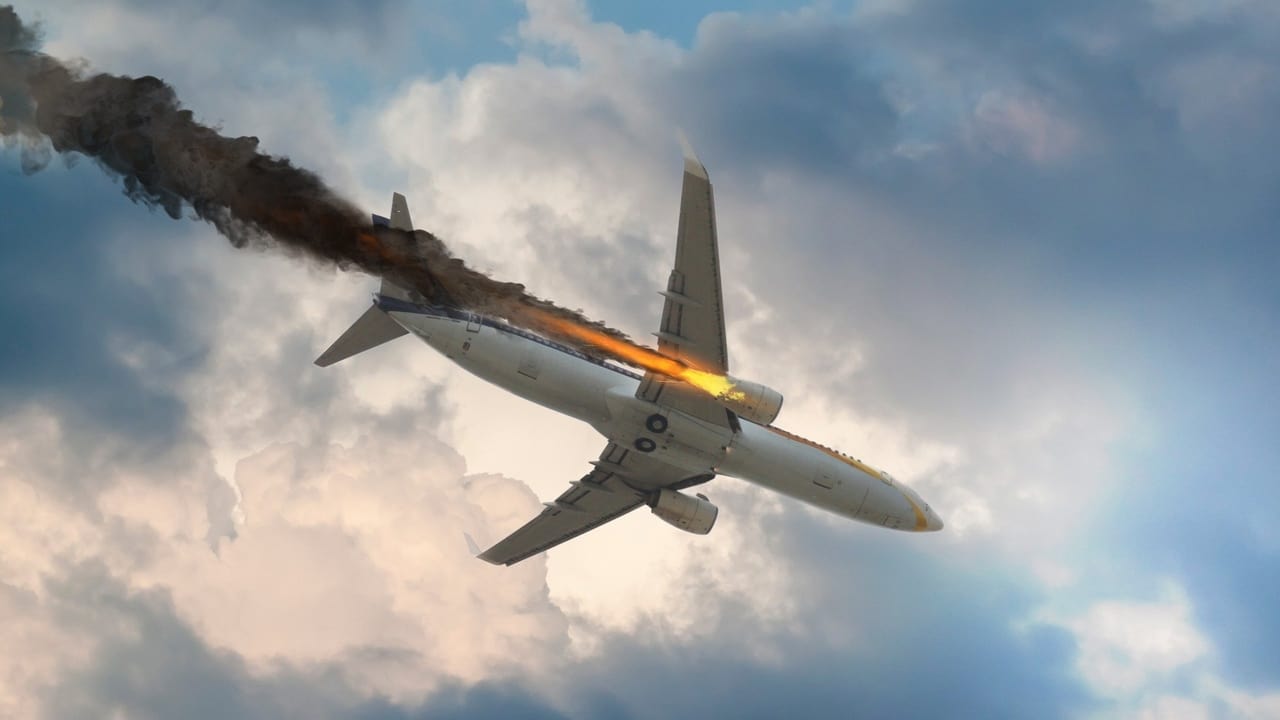
Major real-life air disasters are depicted in this series. Each episode features a detailed dramatized reconstruction of the incident based on cockpit voice recorders and air traffic control transcripts, as well as eyewitnesses recounts and interviews with aviation experts.
Watch Trailer
With 30 Day Free Trial!
Mayday Season 3 Full Episode Guide
On 23 November 1996, Ethiopian Airlines Flight 961 is forced to ditch after running out of fuel. The aircraft breaks up as the wings hit the water, killing 125 people. The aircraft had been hijacked and ran out of fuel because the hijackers did not believe the pilot's insistence that there was not enough fuel aboard to make it to the hijackers' planned destination: Australia.
On 12 May 1989, a 69-car freight train goes out of control while descending from California's Cajon Pass. It derails in a residential neighbourhood of San Bernardino after reaching speeds in excess of 100 miles per hour (160 km/h). Two residents and two train crew members are killed in the initial crash. More than a week later, an underground gasoline pipeline, damaged by earth-moving equipment during the post-crash clean-up, ruptures and sparks a fire that kills another two people. A clerical error had caused the train's weight to be greatly underestimated, and it had been assembled without enough locomotives to provide adequate braking. Additionally, several of the engines had completely inoperable brakes, but this information was not passed on to the crews. Note: This is a Crash Scene Investigation episode.
On 26 September 2000, waves push the MS Express Samina off course, causing it to hit a group of rocks off Paros and sink, killing 80 people. The ferry was on autopilot, with the crew not monitoring the ship's course. They were instead watching an association football match. Note: This is a Crash Scene Investigation episode.
On 8 February 1986, a Via Rail passenger train and a 118-car Canadian National Railway freight train collide, killing 23 people. The freight train crew did not stop at a red railway signal on a section of a passing loop, possibly because they were asleep. Note: This is a Crash Scene Investigation episode.
On 23 March 1994, Aeroflot Flight 593 is en route to Hong Kong, when it stalls and crashes, killing all 75 people on board. The pilot's 15-year-old son accidentally disabled the autopilot while in the captain's seat, causing the aircraft to bank heavily to the right, inducing the stall.
On 31 October 1999, EgyptAir Flight 990, from New York to Cairo, Egypt, dives out of the sky and crashes into the ocean, killing all 217 people on board. The cause of the crash is disputed: the Egyptian government claims mechanical failure associated with the elevator controls caused the crash, but the US government claims the aircraft was deliberately crashed by the Relief First Officer Gameel Al-Batouti in a suicide/homicide.
On 19 January 1995, the crew of Bristow Flight 56C is forced to perform an emergency autorotation to a ditching in the sea, after lightning damages the tail rotor of their helicopter. Despite the rough sea conditions, the 16 oil rig workers and pilots are rescued by nearby ships.
On 3 July 1988, during the Iran–Iraq War, the USS Vincennes launches missiles which bring down Iran Air Flight 655, killing all 290 people on board. The crew of the Vincennes claimed that, despite its high-tech equipment, it mistook the airliner for an Iranian Air Force Grumman F-14 Tomcat fighter. Iran believes that the US deliberately shot down its civilian airliner.
On 11 December 1994, a bomb explodes on Philippine Airlines Flight 434 on the second leg of a service from Manila to Tokyo via Cebu City, killing a passenger, injuring many and damaging some of the aircraft's control systems. The crew successfully lands the aircraft at Naha Airport in Okinawa. Ramzi Yousef, a terrorist, smuggled the bomb aboard the aircraft on the first leg of its flight.
On 7 April 1994, Auburn Calloway, a disgruntled employee, attempts to hijack Federal Express Flight 705 armed with hammers and a speargun. Despite sustaining serious injuries, the crew successfully subdues Calloway and returns the aircraft safely to Memphis International Airport.
On 12 August 1985, the rear pressure bulkhead bursts on a Boeing 747SR operating as Japan Airlines Flight 123, destroying the vertical stabilizer and severing all four of the aircraft's hydraulic systems. The crew manages to keep the aircraft flying for 32 minutes until it clips Mount Osutaka and crashes, killing all but four people out of the 524 passengers and crew aboard.
On 22 November 2003, a European Air Transport Airbus A300 operating on behalf of DHL is climbing away from Baghdad International Airport, when the left wing explodes, causing a massive loss of hydraulic fluid which immobilizes the flight control surfaces. The crew flies the aircraft by changing the engines' thrust for control and make a safe landing 16 minutes later. A surface-to-air missile had been launched at the aircraft.
On 28 April 1988, Aloha Airlines Flight 243 is en route from Hilo to Honolulu in Hawaii, when the upper half of the front fuselage is torn off, blowing out a flight attendant. The aircraft subsequently lands safely at Kahului, Maui. The fuselage failed from corrosion damage and metal fatigue.
Free Trial Channels
Seasons




